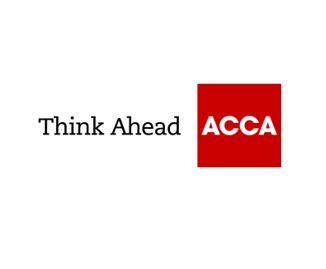Association of Chartered Certified Accountants (ACCA)

Association of Chartered Certified Accountants (ACCA)
United Kingdom, Global professional accountancy body
What ACCA says about its journey towards integrated reporting
When the IIRC was formed and integrated reporting began to be incorporated into mainstream corporate reporting, we felt it was important to reflect this in the ACCA Qualification. So in 2014, we became the first global professional body to examine integrated reporting across our final stage syllabus. We felt that we needed to also lead by example which is why we joined IIRC’s Pilot Programme for reporting entities when it was launched in 2011. Equally significantly, we felt that integrated reporting really captured how we seek to operate and develop ACCA, as a professional body.
Obviously, joining the IIRC’s pilot programme was key to beginning. Following the very first Pilot Programme conference in the Netherlands in 2011, we immediately began the process of trying to look critically at our most recent annual report and how it measured up against IIRC’s emerging idea of content elements and guiding principles.
Analysing what we reported on and how, we realised we were giving a fairly subjective view of our progress, with only partial coverage of the content a reader would expect from a good integrated report.
For us, the most obvious absences were the lack of a business model, the absence of the wider economic and social context in which we were operating, the inclusion of risk reporting (though this did appear in our detailed financial statements) and including all our KPIs and future targets as a means of providing objective and complete disclosure of our performance. None of these exclusions were intentional – it was more that our annual report had evolved as a marketing document that told members and other stakeholders the story of our success over the past year. So we had a significant journey to make before we could say with any degree of confidence that we were practising integrated reporting.
At one of the early Pilot Programmes, Mervyn King said something that very much resonated with us and gave us that all-important philosophical starting point for our efforts by telling us that one of the core purposes of an integrated report was to provide ‘an insight into the quality of the strategic thinking of management and leadership’. This struck a real chord and it’s still the main question we ask ourselves, six years on.
We didn’t do everything at once, but instead took an iterative approach, improving what we were able to improve each year within our resources.
Two important commitments we made at the start of the process were:
- creating a small working group with all the key teams represented. This was essential to being and showing we were ‘joined up’ in the right way
- conducting a wide-ranging materiality assessment and implementing an annual process of stakeholder engagement on our reporting. The ongoing feedback we’ve had through this engagement, especially with our members, has been invaluable in developing our integrated reporting practice.
Key challenges
Our primary stakeholders – our members – are all qualified professional accountants and many of them hold very senior positions. Their most frequent request to us is to make our report as short and digestible as possible! At the same time, we want to make sure we’re meeting all the requirements of the International <IR> Framework as they apply to us, as a professional accountancy body. So striking this balance between conciseness and the right coverage has been a consistent challenge.
In the past couple of years, we’ve taken a ‘digital first’ approach by putting more effort and resources into our microsite presentation. We know our members, students and other stakeholders increasingly prefer an online experience so we need to prioritise this. It also means they can connect more quickly with the specific content that interests them and ignore what doesn’t!
Initially, gathering all the data points we wanted to include took time and effort. We had all of it, but gathering it together, making sure it was consistent and consistently presented and we were not flooding readers with data was a challenge. We also didn’t always have prior year comparatives but this has gradually settled down into a complete six-year picture – four years’ of prior figures for all key measures and one set of future targets.
You can view ACCA’s 2020 integrated report here.
Advice to new integrated reporters
Overall the best piece of advice I can give is start now – don’t worry if you can do everything proscribed by the <IR> Framework: look at what is achievable, quick wins, and what will deliver the most value to your organisation and your stakeholders. Don’t let perfection be the enemy of the good!
Recent integrated reporting professional insights from ACCA:
Insights into integrated reporting: challenges and best practice responses (April 2017)
Use and usefulness of integrated reporting (September 2016)
Materiality and conciseness in integrated reporting (June 2016)
From Share Value to Shared Value (January 2016)
Challenges of Assuring Integrated Reports (November 2015)
About ACCA
ACCA (the Association of Chartered Certified Accountants) is the global body for professional accountants, offering business-relevant, first-choice qualifications to people of application, ability and ambition around the world who seek a rewarding career in accountancy, finance and management.
ACCA supports its 198,000 members and 486,000 students in 180 countries, helping them to develop successful careers in accounting and business, with the skills required by employers. ACCA works through a network of 101 offices and centres and 7,291 Approved Employers worldwide, who provide high standards of employee learning and development. Through its public interest remit, ACCA promotes appropriate regulation of accounting and conducts relevant research to ensure accountancy continues to grow in reputation and influence.
